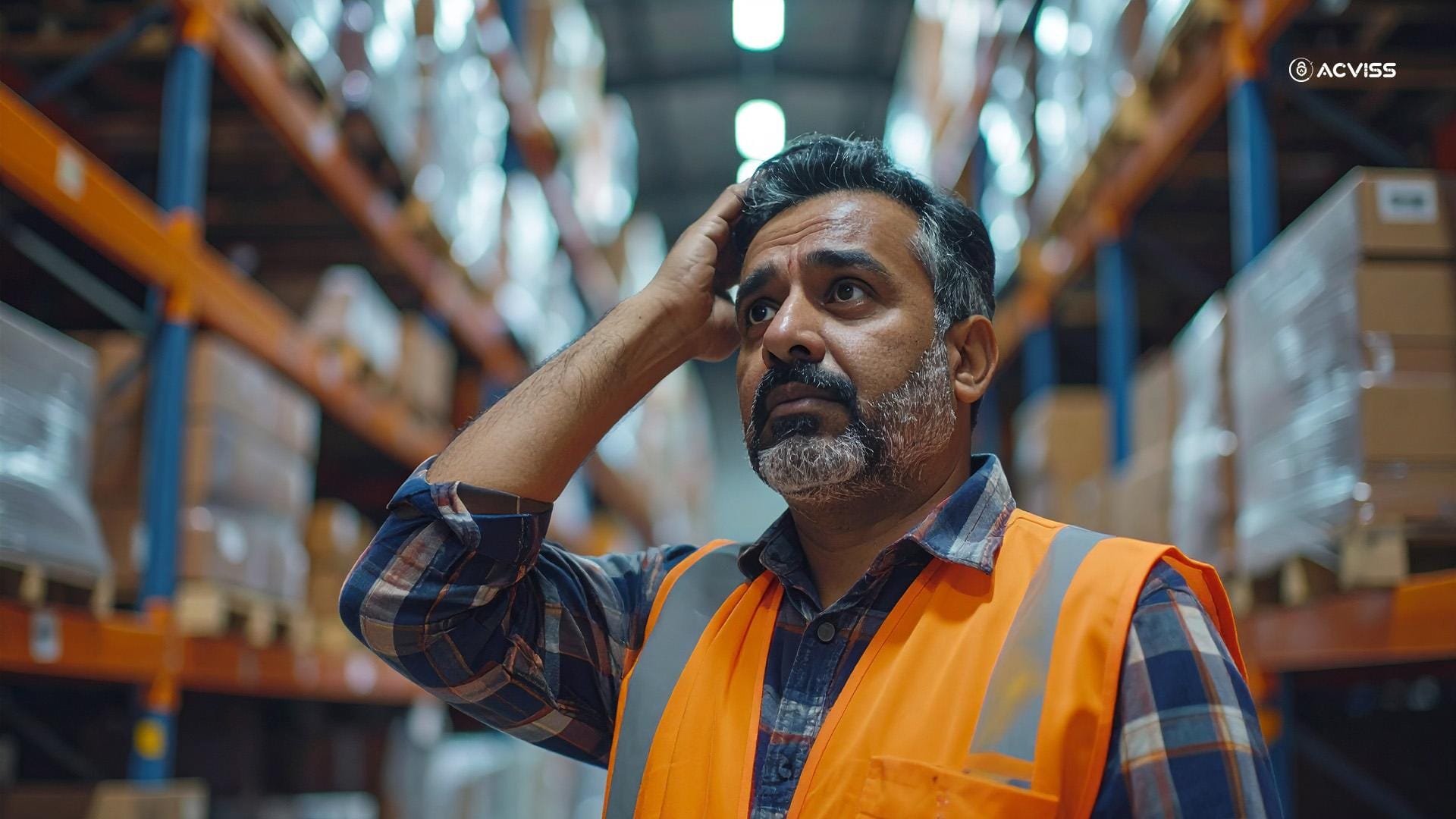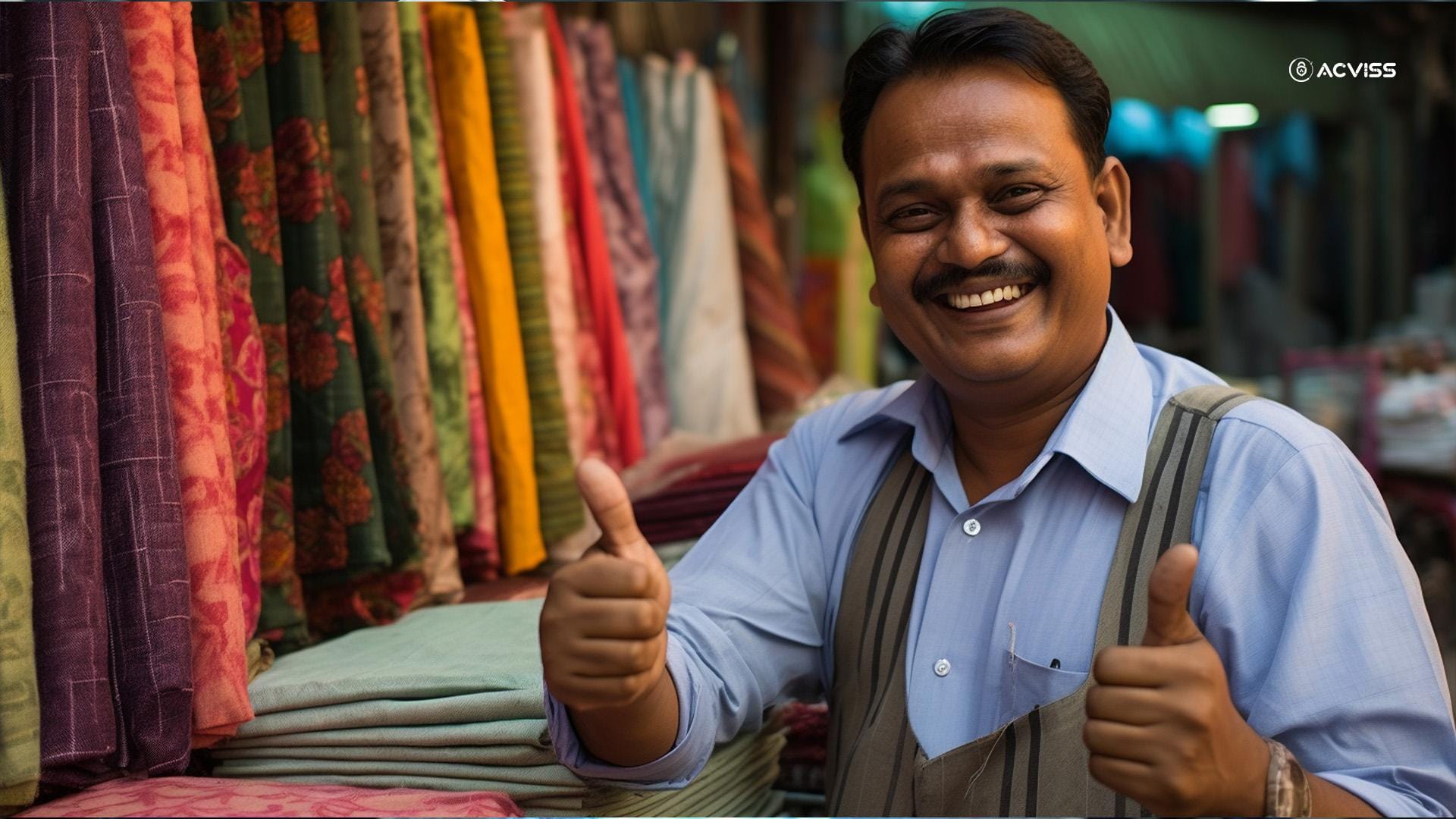From Policy to Production: How Government Initiatives are Revitalising Homegrown Industries

India’s manufacturing sector is undergoing a massive transformation. It is driven by powerful government initiatives that aim to make India a global manufacturing powerhouse. According to a report by Invest India, the manufacturing sector's contribution to GDP is expected to rise to 25% by 2025, up from 17% currently.
Homegrown industries, especially MSMEs are the backbone of this journey. But without strategic support, challenges like outdated processes, counterfeiting, and weak supply chains can hold them back. This is why government-backed schemes and the adoption of cutting-edge technology are becoming game-changers.
In this blog, we’ll discuss how various government initiatives, digital innovations, and anti-counterfeiting measures breathe new life into Indian manufacturing — and how industries can leverage these tools for a stronger future.
Table of Contents
- Government Initiatives Transforming Indian Manufacturing
- Tackling Counterfeiting in the Supply Chain
- The Role of Technology in India's Manufacturing Scene
- Challenges and Opportunities Ahead
- How Acviss Empowers Indian Manufacturers
- Conclusion
Government Initiatives Transforming Indian Manufacturing

Key Government Schemes
To fuel the growth of homegrown industries, the Indian government has launched several impactful initiatives aimed at boosting domestic manufacturing, innovation, and investment. Here’s a quick breakdown of the key government schemes driving India’s manufacturing transformation:
1. Make in India
Launched in 2014, the Make in India initiative is designed to transform India into a global manufacturing hub. The government focuses on reducing regulatory hurdles, providing incentives, and encouraging both foreign and domestic investments across various sectors.
- Focuses on sectors like electronics, defence, automobiles, textiles, and more.
- Aims to make India a manufacturing powerhouse by encouraging local production and investment.
- Simplifying the regulatory environment makes it easier for businesses to set up and operate.
2. Production-Linked Incentive (PLI) Scheme
The PLI Scheme was introduced to provide direct financial incentives to businesses for incremental sales in selected manufacturing sectors. The scheme aims to boost local production, reduce dependency on imports, and promote exports.
- Focuses on sectors like electronics, pharmaceuticals, telecom, and solar PV modules.
- Offers financial incentives to companies based on their incremental sales of goods manufactured in India.
- Encourages both multinational and Indian firms to invest in local manufacturing and export goods globally.
3. Credit Guarantee Scheme for MSMEs
The Credit Guarantee Scheme for MSMEs was designed to provide easy access to finance for small and medium-sized businesses. The government helps MSMEs by offering collateral-free loans, making it easier for these businesses to grow, modernise, and compete in the global market.
- Provides collateral-free loans to micro and small enterprises.
- Helps MSMEs access the necessary financial resources to expand operations.
- Managed by the Ministry of MSME and supported by the Credit Guarantee Fund Trust for Micro and Small Enterprises (CGTMSE).
These schemes have significantly improved access to capital, simplified regulatory processes, and encouraged industries to innovate, fostering an environment conducive to manufacturing growth.
The Push for Innovation
In addition to financial and policy support, the Indian government is putting a strong emphasis on driving innovation within the manufacturing sector, aligning with the global shift toward Industry 4.0. This innovation push is not just about new technologies, but also about creating a sustainable ecosystem that fosters research, development, and technological advancement. Here’s how the government is supporting innovation:
- Setting up incubators and R&D centers: Across the country, the government is establishing innovation hubs, incubators, and research centers to encourage technological development, innovation, and collaboration between businesses, universities, and research institutions.
- Supporting Industry 4.0 adoption: The government is promoting the adoption of cutting-edge technologies such as IoT (Internet of Things), AI (Artificial Intelligence), robotics, and smart manufacturing systems. These technologies are driving automation, improving efficiency, and reducing human error in production processes.
- Technology Upgradation Fund Scheme (TUFS): The TUFS offers funding and subsidies for the adoption of modern, energy-efficient, and eco-friendly technologies in manufacturing industries. It encourages manufacturers to upgrade their machinery and processes, enabling them to become more competitive globally.
This emphasis on innovation is particularly evident in emerging sectors like clean tech, electronics, and electric vehicles (EVs), all of which are seeing rapid growth due to global demand for sustainable products. By investing in these sectors, India is positioning itself to be a key player in the global marketplace for futuristic and eco-friendly solutions.
Tackling Counterfeiting in the Supply Chain

Why Anti-Counterfeiting is a Priority
Counterfeiting is a growing threat to India's homegrown industries. According to the Authentication Solution Providers' Association (ASPA), India witnessed a 24% rise in counterfeit incidents across industries between 2019 and 2021.
Fake products don’t just hurt brand reputation — they also lead to massive financial losses, compromise consumer trust, and slow down the growth of authentic manufacturers.
That’s why solutions like traceability, anti-counterfeiting technologies, and digital verification have become critical in today’s supply chains.
Government's Role in Combating Fake Products
The Indian government has recognised the seriousness of the problem and is taking action:
1. TAF 2025 Forum (Track & Trace Authentication Forum)
- Brings together policymakers, industry experts, and solution providers to fight counterfeiting.
- Focuses on promoting authentication and traceability solutions across industries.
2. BIS (Bureau of Indian Standards) Enforcement
- Strengthening mandatory certifications and labelling to ensure product authenticity.
- Increased random checks and penalties for counterfeit goods.
Technology Fighting Back
Today, brands and manufacturers are increasingly using advanced technologies to stay a step ahead of counterfeiters:
- Blockchain: Creates a tamper-proof record of product origin and movement.
- AI and Machine Learning: Detects anomalies in the supply chain in real-time.
- IoT Devices: Enables real-time tracking of goods throughout their lifecycle.
- Smart Labels and Digital Verification: Let consumers verify product authenticity through QR codes or NFC tags.
The Role of Technology in India's Manufacturing Scene

Integrating Digital Verification & Traceability
The traditional way of manufacturing and distributing products is rapidly evolving. Today, digital verification and traceability solutions are becoming must-haves for Indian manufacturers, not just for compliance but also for building consumer trust.
Here’s how they are making a difference:
- Product Authentication: Digital verification tools help manufacturers label every product uniquely, making it easy for consumers and stakeholders to check authenticity instantly.
- Real-Time Visibility: Traceability systems enable brands to track the movement of goods across every stage — from raw material sourcing to final delivery.
- Data-Driven Insights: Manufacturers can use data from these systems to predict risks, identify supply chain bottlenecks, and improve operational efficiency.
Quick Stat:
The Indian traceability and authentication solutions market is expected to grow at a CAGR of 15% between 2023 and 2028.
Building Transparent, Secure Supply Chains
Transparent supply chains have become essential for businesses to build trust and ensure product authenticity. By providing visibility into every step of the supply chain, companies can track the movement of goods, verify their origin, and identify potential risks. This strengthens consumer confidence as well as helps businesses comply with regulatory requirements and fight against issues like counterfeiting and fraud.
Here’s why:
- Combating Counterfeits: Traceable products make it almost impossible for counterfeit goods to enter the supply chain undetected.
- Building Consumer Trust: Customers today want to know where and how products are made. A transparent supply chain strengthens brand loyalty.
- Compliance Readiness: Many domestic and international regulations (like BIS standards or EUDR for exports) now require traceability — being compliant keeps businesses competitive.
Digital product authentication — where customers can scan a QR code or smart tag to verify product genuineness — is becoming a key tool in fighting fake products and assuring buyers.
Impact of Technology on MSMEs
While large manufacturers are leading in tech adoption, MSMEs (Micro, Small, and Medium Enterprises) are quickly catching up, but they face a few hurdles:
- High Initial Costs: Setting up digital traceability systems can be expensive for smaller players.
- Lack of Technical Knowledge: Many MSMEs are still unfamiliar with advanced tech solutions.
- Integration Challenges: Existing processes may need upgrades to integrate digital verification smoothly.
Government Support to Help MSMEs:
- Technology Upgradation Fund Scheme (TUFS): Financial assistance for tech adoption.
- Digital MSME Scheme: Offers tools and training to help MSMEs move towards digital operations.
Example:
Several Indian MSMEs in sectors like textiles, agriculture, and pharma have successfully implemented QR code-based product authentication — helping them boost customer confidence and expand to global markets.
Challenges and Opportunities Ahead
The Roadblocks to Full Implementation
While the manufacturing revolution in India is well underway, there are still hurdles that businesses need to overcome:
1. Cost of Adoption
Advanced technologies like blockchain, IoT, and AI solutions can have a high initial setup cost, which may deter small and mid-sized manufacturers.
2. Awareness Gap
Many MSMEs are still unaware of available government schemes, modern technologies, or how traceability can safeguard their businesses.
3. Skills Shortage
There's a lack of trained manpower to manage and implement new digital systems, especially in remote and semi-urban areas.
4. Fragmented Supply Chains
In sectors like agriculture and textiles, the supply chain is highly fragmented, making traceability and authentication harder to implement across all players.
Well, every coin has two sides. Despite these challenges, the opportunities are enormous for the Indian manufacturing industry and growing rapidly.
The Future Outlook for Indian Manufacturing
The future looks extremely promising:
- With continued government support, schemes like Make in India and PLI are expected to fuel both domestic growth and exports.
- Technology adoption is becoming easier and more affordable with cloud-based solutions and mobile apps designed for MSMEs.
- Consumer demand for authentic, transparent products will push more manufacturers to embrace digital verification and traceability.
- Global regulations like EUDR (European Union Deforestation Regulation) will further push Indian exporters to invest in supply chain transparency.
The picture is clear, manufacturers that embrace technology, leverage government incentives, and prioritise authenticity will be the ones leading India’s manufacturing boom by 2025 and beyond.
How Acviss Empowers Indian Manufacturers

Manufacturers today need more than just production power. They need protection, transparency, and consumer trust. That’s where Acviss steps in as a game-changer.
Here’s how Acviss empowers your business:
- End-to-End Traceability: Seamlessly track your products across the entire supply chain, ensuring visibility, authenticity, and compliance with global standards.
- Smart Anti-Counterfeiting Solutions: Protect your brand from fakes with advanced authentication tools like encrypted QR codes, smart labels, and blockchain-secured verification.
- Consumer-First Authentication: Give your customers the power to verify products instantly, boosting transparency and strengthening brand loyalty.
Need an easy plug-and-play tool for traceability and regulatory compliance?
Origin by Acviss offers a simple, ready-to-use platform built specifically for manufacturers and exporters targeting global markets.
With Acviss, you’re not just protecting your products — you're building a trusted, future-ready brand.
Conclusion
And that’s a wrap!
India’s manufacturing sector is standing at a massive turning point. Government initiatives like Make in India, tech innovations like traceability and digital verification, and a renewed focus on authenticity are setting the stage for something big.
Sure, challenges exist — but the energy, opportunities, and support available today have never been better.
If you’re a manufacturer or a brand in India, this is the time to think bigger, act smarter, and build stronger. Leverage government schemes, invest in technologies that safeguard your supply chain, and stay ahead of the curve.
And hey, if you're looking for simple, powerful tools to secure your products and boost consumer trust, solutions like traceability and anti-counterfeiting from Acviss are exactly what you need to win in this exciting new era!